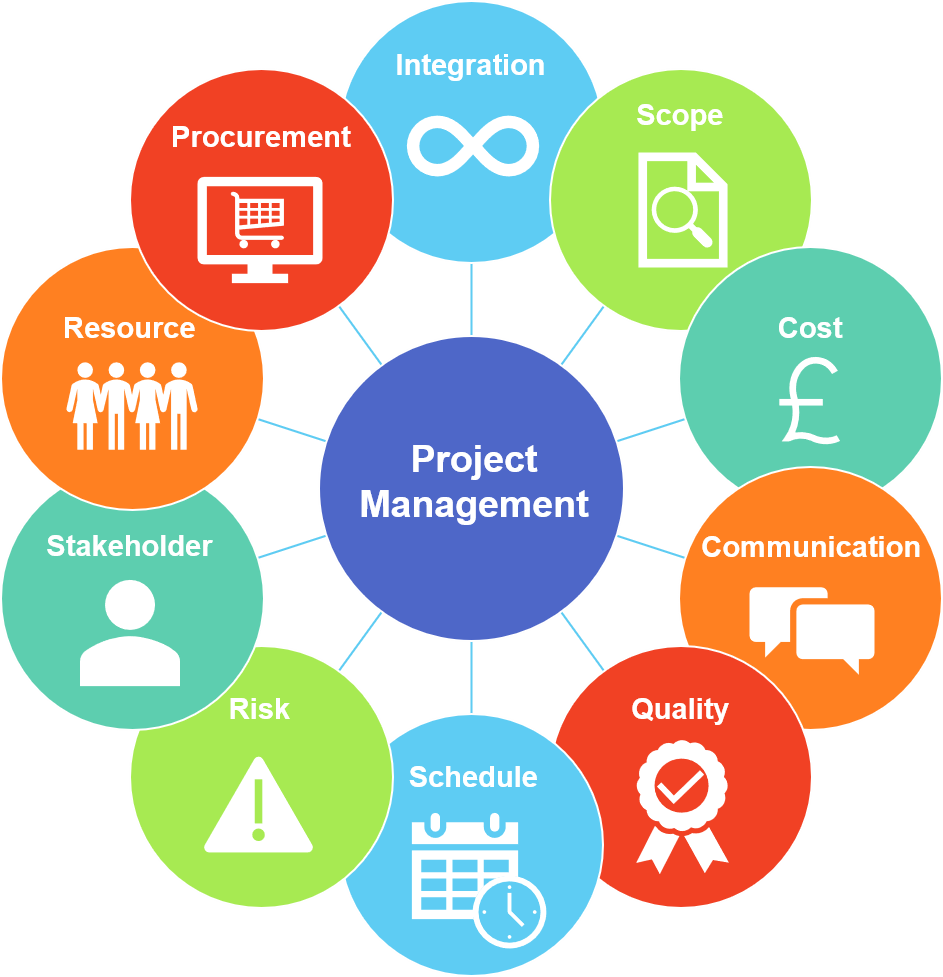NAVTTC: Batch 5- Project Management Course 2023 – 2024
Project management is the application of techniques, methods, skills, knowledge, and experience to achieve particular project objectives within agreed-upon constraints. Project management has final outputs that are limited in time and budget. Because project management is in high demand, it is a well-paying and stable career option. Given the great demand for this course, NAVTTC has made it available for free to Pakistani youth as part of the Prime Minister’s Youth Skills Development Program Phase 5.
In this article, we are going to discuss the following points for those youngsters who want to learn and earn through Project Management.
- Average Salary of Project Manager
- Job Opportunities for Project Manager
- Reasons to Join NAVVTC Project Management Course– Batch 5
- What you will learn in NAVTTC Phase 5 Project Manager
- Career Path of Project Manager
Average annual Salary
The average salary of a Project Manager is 12,35,000 PKR for fresher
What is the eligibility criteria for NAVTTC Project Management Course?
The eligibility criteria for NAVTTC Project Management Course is;
- Age: 18-40
- Minimum qualification:
- Bachelors in IT
- Bachelors in CS
- Bachelors in SE
- Bachelors in MIS
- Bachelors in Math
Job Opportunities for Project Manager
In just one month, we present the project management positions announced by international platforms, i.e., professions in project management cover industries such as construction, marketing, information technology, biotechnology, and sustainable energy. October 15, 2023, so that you can examine how well this career is in demand in both Pakistan and the global employment market.
- LinkedIn: 60+ jobs in Pakistan and 10000+ jobs in the USA.
- Indeed: 80+ jobs in Pakistan and 10000+ jobs in the USA.
- Glassdoor:50+ jobs in Pakistan and 10000+ in the USA.
Reasons to Join NAVVTC Project Management Course- Batch 5
Aside from the above-stated salary and job opportunities of a Project Manager, there are strong reasons for you to consider a career in Project management:
- In-Demand Skills: Project management skills are highly required in various industries. Completing a PM course equips you with the knowledge and methods to professionally plan and oversee projects, making you a valued asset to employers.
- Career Advancement: Project management skills can open doors to better job opportunities and career advancement. Many mid-to-senior level roles require project management expertise.
- Global Relevance: Project management principles are applicable across industries and worldwide. This certification is recognized internationally, letting you work on projects globally pursue international career opportunities.
- Increased Earning Potential: Project managers often command higher salaries due to their specialized skills and ability to deliver projects on time and within budget.
- Problem-Solving Skills: Project management involves complex problem-solving. Project management skills teach you how to identify issues, and devise solutions, skills that are transferable to various facets of life and work.
- Versatility: Project management is not limited to any specific industry. It’s applicable in IT, construction, healthcare, finance, and many other fields.
- Job Stability: Project managers often enjoy a stable job market. Skilled project managers ensure companies complete projects successfully, making this a relatively recession-proof career.
- Effective Communication: Project managers must communicate effectively with team members, stakeholders, and clients.
- Strategic Planning: Project managers are responsible for positioning projects with organizational goals.
- Networking Opportunities: By enrolling in a Project management course, you’ll have the opportunity to connect with other project management professionals. Networking can lead to new job opportunities and valuable industry connections.
What you will learn in NAVTTC Phase 5 Project Management courses
- Learn to manage projects from start to finish using tools that you can use alone or as a complete method.
- Understand what is included in your project, what is not, and why.
- Make a good plan and create a timetable to manage projects well.
- Keep your project on track to finish on time, within budget, and as planned.
- Decide who does what in your project team.
- Make a project that can handle risks and changes without problems.
- Find practical ways to involve other people interested in your project.
- Figure out how to bring together different programs, projects, and goals.
Career path
A job in certified project management entails managing projects effectively. It usually begins with understanding the fundamentals of project management principles and procedures. Entry-level positions such as Project Coordinator or Assistant Project Manager allow you to obtain hands-on experience with tasks and team collaboration. Advanced certificates such as PMP or CSM can lead to positions such as project manager, program manager, or project director as one advances. These responsibilities entail managing larger projects and budgets and steering teams to effective project completion. Moving up the ranks may lead to senior leadership positions such as Director of Project Management or COO, where one supervises an organization’s whole project portfolio. With an increasing demand for skilled project managers across industries, a career in certified project management provides continual prospects for advancement.
FAQS
1 What is a project management course for?
Project management training provides broad-based competency in a range of management skills, that can increase workplace efficiency, and contribute to improved profitability and client service.
2 Is a project manager a good job?
Even though project management is not a straightforward job to have, one of its main advantages is that the effort you put into your work is recognized and rewarded. It is a lucrative career path you will be satisfied with.
3 Is project management an easy course?
The difficulty level of learning project management can vary depending on the individual’s background, prior experience, and commitment to learning the subject.


